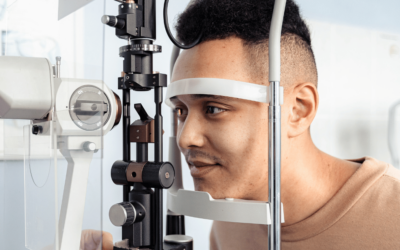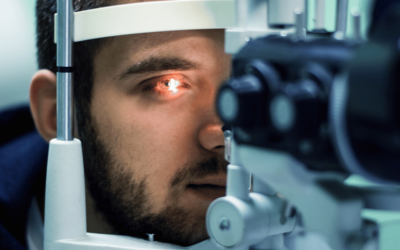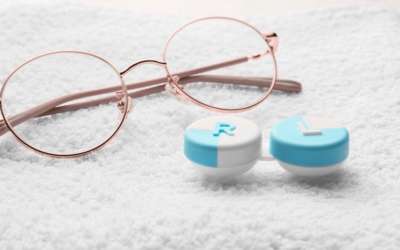The phrase “20/20 vision” is often thought to mean perfect or clear eyesight. That’s why people say, “hindsight is 20/20,” meaning you can see things clearly when looking back at events. You might have heard a friend proudly say they “have 20/20 vision,” thinking it means they have perfect eyesight.
But what does 20/20 vision actually mean? If someone has 20/20 vision, does it mean their vision is “perfect”?
What is 20/20 Vision?
The AOA (American Optometric Association) defines 20/20 vision as normal visual acuity (the clarity or sharpness of vision) measured at a distance of 20 feet. If you have 20/20 vision, you can see clearly at 20 feet what should normally be seen at a distance. If you have 20/100 vision, you must be as close as 20 feet to see what a person with normal vision can see at 100 feet.[1]
Is 20/20 Vision Considered Perfect Vision?
20/20 vision is not considered perfect vision. It is considered normal vision.
20/20 vision does not account for other critical visual skills, including peripheral vision, depth perception, eye coordination, the ability to see colors, and the ability to properly focus on objects.
Why Do Some People Not Have 20/20 Vision?
People who have hyperopia (farsightedness), myopia (nearsightedness), astigmatism, or certain eye diseases can’t see clearly at 20 feet what should normally be seen at that distance. During a comprehensive eye exam, we measure visual acuity. If we determine you cannot see clearly at 20 feet what should normally be seen at that distance, we will prescribe the appropriate treatment to help you achieve normal visual acuity.
If your vision isn’t 20/20 due to farsightedness, nearsightedness, or an astigmatism, you may be able to achieve 20/20 vision with the right prescription for eyeglasses or contact lenses. If your vision isn’t 20/20 because of an eye disease, we may prescribe medication or develop a custom treatment plan based on your individual eye health needs.
Do People with 20/20 Vision Need Glasses?
Most people with 20/20 vision won’t need to wear eyeglasses until around the age of 40 or so, when vision starts to worsen when looking at objects up close. As we age, the lenses on the front part of our eyes harden and become less flexible, leading to a gradual loss of the eyes’ ability to focus on nearby objects.
Some people over 40 may still be able to see 20/20, but they may need reading glasses or progressive lenses to see things nearby clearly. Another scenario in which a person with 20/20 vision will wear eyeglasses is if they work in front of a computer all day and need lenses with blue-light blockers. Additionally, they might need glasses if their eyes are misaligned, and they need special lenses to help them focus properly to avoid side effects such as headaches, neck and shoulder pain, and eye fatigue and strain.
If I Have 20/20 Vision, Do I Still Need an Eye Exam?
If it’s been more than a year or two since your last eye exam, you may be surprised to learn that your vision has changed. Even if your last eye exam determined you have 20/20 vision and you feel that you can see fine, our comprehensive eye exams in Tinley Park are about more than your visual acuity. We fully examine your eye health, too, and can spot signs of diabetes, high blood pressure, and other conditions you may not be aware of. To schedule an appointment, please contact our office today.
[1] The AOA (American Optometric Association)



